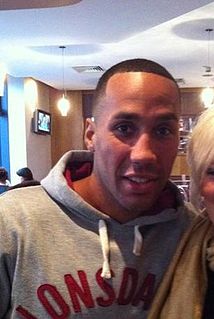A Quote by Simon Sebag Montefiore
In 1942, the Germans were running out of fuel. They were advancing so fast across the grasslands, the hot grasslands of south Russia, and the Russians were running out of tanks. And so both of them turned to cavalry, and there were great cavalry battles on the grasslands.
Related Quotes
It hit me that an Apache resistance would be a wonderful, you know, it would be a wonderful metaphor for Jewish-American soldiers to be using behind enemy lines against the Nazis because the Apache Indians... were able to fight off for decades both the Spaniards and the Mexicans and the U.S. Cavalry for years because of their - they were great guerrilla fighters. They were great resistance fighters. And one of their ways of winning battles was psychological battles.
When I was in high school in the early 1970s, we knew we were running out of oil; we knew that easy sources were being capped; we knew that diversifying would be much better; we knew that there were terrible dictators and horrible governments that we were enriching who hated us. We knew all that and we did really nothing.
25 million of Russian people suddenly turned out to be outside the borders of the Russian Federation. They used to live in one state; the Soviet Union has traditionally been called Russia, the Soviet Russia, and it was the great Russia. Then the Soviet Union suddenly fell apart, in fact, overnight, and it turned out that in the former Soviet Union republics there were 25 million Russians. They used to live in one country and suddenly found themselves abroad. Can you imagine how many problems came out?
Both Socrates and Jesus were outstanding teachers; both of them urged and practiced great simplicity of life; both were regarded as traitors to the religion of their community; neither of them wrote anything; both of them were executed; and both have become the subject of traditions that are difficult or impossible to harmonize.







































